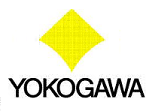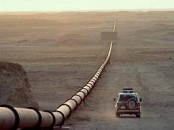 Yokogawa is pleased to announce the addition of Soteica Visual MESA's best-in-class energy management and optimization solution services to its portfolio of plantwide energy management solutions (EMS). Yokogawa will provide this new offering to its customers through its strong sales and service channels. Yokogawa has also acquired 44.3% ownership of Soteica Visual MESA to accelerate the joint development of EMS.
Yokogawa is pleased to announce the addition of Soteica Visual MESA's best-in-class energy management and optimization solution services to its portfolio of plantwide energy management solutions (EMS). Yokogawa will provide this new offering to its customers through its strong sales and service channels. Yokogawa has also acquired 44.3% ownership of Soteica Visual MESA to accelerate the joint development of EMS.
Manufacturers around the world are highly interested in, and have a strong need for, EMS that will help them consume less energy and reduce their manufacturing costs. In addition, there is an increasing trend to optimize the mix of conventional and alternative energy sources used by plants, which can help to protect the environment by reducing the emissions of gases such as CO2 and NOx. There are two components to energy management in plants. One is to make more efficient the supply and distribution of utilities, such as steam, electricity and fuel that are used by equipment in the main process, and the other is to optimize the energy consumed by the main process itself.
For this reason, Yokogawa has decided to partner with Soteica Visual MESA, a global technology leader in the EMS field that has worked closely with major oil companies and has a strong track record in the oil industry. The partnership will allow Yokogawa to sell Soteica Visual MESA's well-proven Visual MESA energy management and optimization solution package, extending the range of solution services that it is able to offer to its customers. The partnership will also allow Soteica Visual MESA to expand its sales of Visual MESA through Yokogawa's global sales network, with a particular focus on Asia.
Visual MESA is capable of reducing annual energy costs by approximately 2% to 5%. There are approximately 3,400 plants worldwide with $40 million or more in utility costs each year that could benefit from Visual MESA and obtain a return on their investment in one year or less, and Yokogawa will initially be targeting these facilities.
Yokogawa will provide high value added EMS services, including maintenance and sitewide energy management and optimization services (sustainability services). Yokogawa and Soteica Visual MESA will also cooperate in engineering with the aim of acquiring the knowledge needed to create a new business model for an EMS service that can help to optimize energy efficiency throughout a plant, including the main process and utilities.
"We are very excited about entering into this comprehensive partnership with Yokogawa as it will enable us to dramatically increase the exposure of Visual MESA, our industry leading solution for utilities optimization", said Oscar Santollani, Soteica Visual MESA's CEO. He added, "We have found in Yokogawa a partner with whom we share the same work ethics and engineering rigor. We look forward to a long and fruitful relationship."
Yokogawa President Shuzo Kaihori commented as follows: "Our customer's technologically advanced plants need not only to reduce their energy consumption but also to obtain the best mix of conventional and renewable energy sources in order to protect the environment by reducing emissions of CO2, NOx, and other gases. To meet our customers' growing needs in this area, Soteica is an ideal fit for Yokogawa, allowing us to deliver field proven plantwide energy management and optimization solutions and services."
Air Jordan
 Technip has been awarded by Sarawak Shell Berhad an engineering, procurement, construction, installation and commissioning contract for two new gas-export lines at the Laila and D12 fields, respectively located 50 kilometers Northwest of Miri, at a water depth of 75 meters, and 140 kilometers offshore Bintulu, Malaysia, at a water depth of 50 meters.
Technip has been awarded by Sarawak Shell Berhad an engineering, procurement, construction, installation and commissioning contract for two new gas-export lines at the Laila and D12 fields, respectively located 50 kilometers Northwest of Miri, at a water depth of 75 meters, and 140 kilometers offshore Bintulu, Malaysia, at a water depth of 50 meters.
 The critical Iran-Pakistan gas pipeline project is entering the implementation phase as Pakistan’s state-owned firm Inter-State Gas Systems and Tadbir Energy Costar Iranian Co will sign a construction contract for laying the pipeline in Pakistan sooner.
The critical Iran-Pakistan gas pipeline project is entering the implementation phase as Pakistan’s state-owned firm Inter-State Gas Systems and Tadbir Energy Costar Iranian Co will sign a construction contract for laying the pipeline in Pakistan sooner. Honeywell’s UOP has announced that its UOP Oleflex™ process technology has been selected by China’s Longgang Chemical Co. to produce key ingredients for fuels and synthetic rubber. Honeywell’s UOP C4 Oleflex process will be used to convert refinery-derived isobutane to isobutylene, a valuable petrochemical used in the production of fuels and synthetic rubber. This is UOP’s second C4 Oleflex process license in China. In addition to technology licensing, Honeywell’s UOP will provide basic engineering, catalysts, adsorbents, specialty equipment and engineering for the project.
Honeywell’s UOP has announced that its UOP Oleflex™ process technology has been selected by China’s Longgang Chemical Co. to produce key ingredients for fuels and synthetic rubber. Honeywell’s UOP C4 Oleflex process will be used to convert refinery-derived isobutane to isobutylene, a valuable petrochemical used in the production of fuels and synthetic rubber. This is UOP’s second C4 Oleflex process license in China. In addition to technology licensing, Honeywell’s UOP will provide basic engineering, catalysts, adsorbents, specialty equipment and engineering for the project. Yokogawa is pleased to announce the addition of Soteica Visual MESA's best-in-class energy management and optimization solution services to its portfolio of plantwide energy management solutions (EMS). Yokogawa will provide this new offering to its customers through its strong sales and service channels. Yokogawa has also acquired 44.3% ownership of Soteica Visual MESA to accelerate the joint development of EMS.
Yokogawa is pleased to announce the addition of Soteica Visual MESA's best-in-class energy management and optimization solution services to its portfolio of plantwide energy management solutions (EMS). Yokogawa will provide this new offering to its customers through its strong sales and service channels. Yokogawa has also acquired 44.3% ownership of Soteica Visual MESA to accelerate the joint development of EMS. KBR has announced it has been selected by PT Pupuk Sriwidjaja Palembang, to provide licensing, engineering services and proprietary equipment for a new 2000 MTPD ammonia and 2750 MTPD urea plant located in Palembang, South Sumatra, Indonesia.
KBR has announced it has been selected by PT Pupuk Sriwidjaja Palembang, to provide licensing, engineering services and proprietary equipment for a new 2000 MTPD ammonia and 2750 MTPD urea plant located in Palembang, South Sumatra, Indonesia.